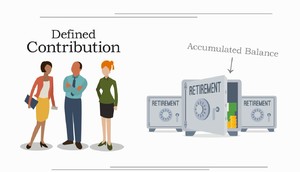Posted on Mar 7, 2023
While it’s true that many private companies have switched from defined benefit plans to defined contribution plans (such as 401(k) plans), it’s worth considering whether a defined benefit plan would benefit you as a business owner and help you meet your tax and savings goals. Generally, the employer makes the most contributions in a defined benefit plan, although sometimes voluntary contributions by employees are permitted or required.
Unlike a defined contribution plan in which employees make most contributions and assume investment risk, defined benefit plans offer employees a fixed, pre-established benefit at retirement, usually a monthly income. You, as the employer and plan sponsor, assume the investment risk. However, there are advantages to the employer as well, which include the following:
- Your business can generally contribute (and deduct) more than under other retirement plans.
- Defined benefit plans are prized by employees because they provide a predictable benefit. Therefore, having a defined benefit plan can attract and retain top talent.
- Substantial benefits can be provided and accrued within a short time, even with early retirement.
- The employer can have other retirement plans.
- The business can be of any size.
- Vesting can be immediate or spread out over a period of 7 years.
Generally, businesses that have predictable earnings and long-term viability are best-suited for a defined benefit plan because there are consequences if required contributions are missed. Defined benefit plans can also be more complex to administer. Companies with defined benefit plans must file a Form 5500 with a Schedule SB on an annual basis.
Watch this video for more information on how a defined benefit plan can benefit you, your employees, and your business.
Back to Blogs Helpful Resource Links
